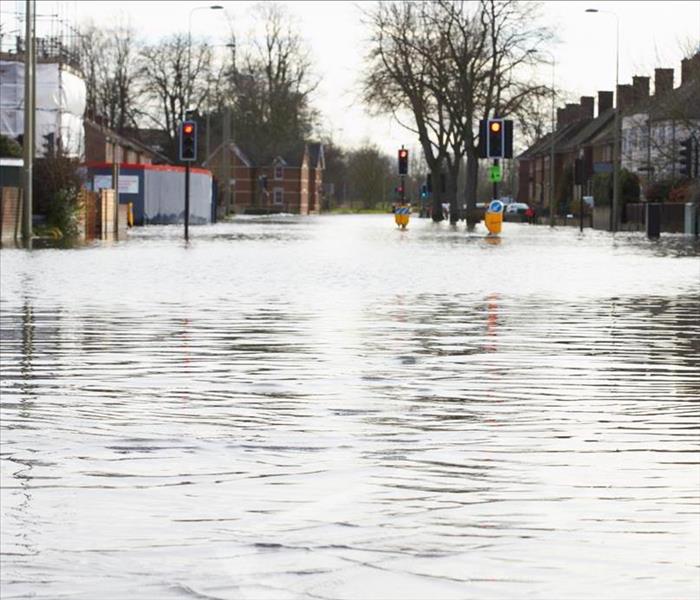Flood Prevention Strategies for Building Owners
3/10/2022 (Permalink)
You probably have an extensive ongoing maintenance plan for your building in Greenville, NC. You winterize the property before the first freeze, make sure the plumbing is working properly and repair equipment quickly when it malfunctions.
Commercial property is a big investment, so it makes sense to protect it as well as you can. There are several flood prevention strategies that every building owner should use.
Incorporate Flood Prevention Measures in Landscaping
Protecting your building starts from the outside. Your regular maintenance plan likely includes several tactics to keep floodwaters at bay:
- Clean gutters and downspouts
- Upgrade landscape slope to direct water away from the foundation
- Keep trees and bushes trimmed to prevent unnecessary debris
Various landscaping options you use can also help. Plant groundcover or use mulch to slow the flow of water and encourage absorption. Concrete barriers not only provide a pleasant visual separation between garden beds and the lawn but also act as dams to control the flow of precipitation. Ask your landscaper for other options that help prevent unsightly and damaging floods.
Improve Water Flow Around Your Property
One of the easiest flood prevention strategies you can employ is to improve water flow. Floods only happen because heavy rains and their subsequent runoff have no place to go. Use barrier methods such as sandbags or inflatable blockades to stop water from getting into your building when you know a storm is on its way.
You can also create natural pathways with well-designed trenches or water wells. If you have the space to store rainwater safely, you may even be able to incorporate it into your irrigation system to save money on the utility bill later.
Purchase Flood Insurance
Even with every precaution in place, the fiercest storms are likely to result in some damage to your building. Your basic property policy is not likely to cover the cost of professional flood cleaning services for damage from a storm, though. You need to have a separate flood policy in place, particularly if your building is located in a flood plain. This helps you pay for restoration after a storm so that your business can operate normally again.
Talk to Your City Officials
No matter what measures you take to protect your own property, an overtaxed municipal system is still likely to cause problems for you. A flooded sewer can back up into your pipes and may cause damage inside the building, especially in structures built before 1980, as they don't typically have the safeguards used in newer construction processes. If you are concerned about the effect on your property, petition city officials to look for better ways to prevent floods. They may be able to create overflow areas, improve sewer drainage or install more efficient water filtration measures that benefit everyone.
Taking care of your commercial building takes forethought and preparation. Incorporating flood prevention strategies into your regular maintenance plan, particularly as storm season approaches, is a smart idea. While having a flood policy to back you up in case of disaster is crucial, protecting your building from damage in the first place is even better.




 24/7 Emergency Service
24/7 Emergency Service
